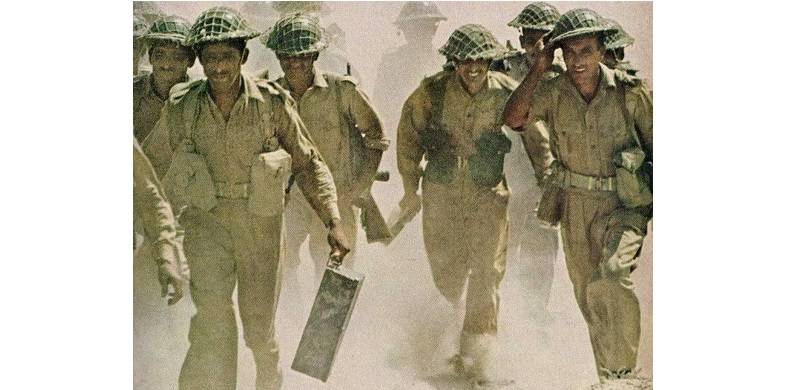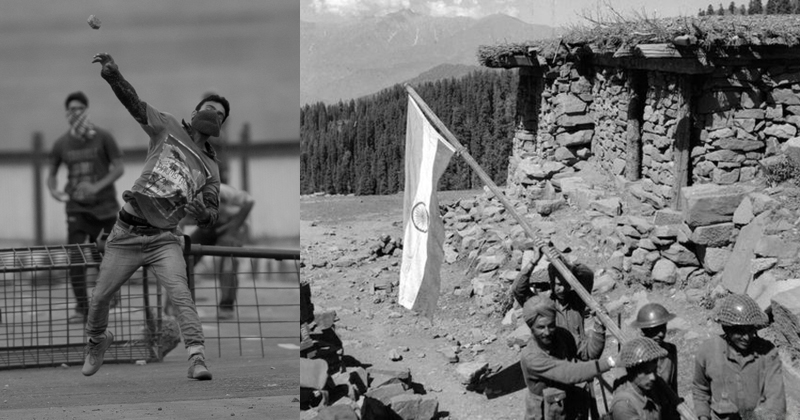
Operation Gibraltar: August 1965
In August 1965, Pakistan launched a secret military operation codenamed Operation Gibraltar, aimed at provoking rebellion in the Indian-held portion of Jammu and Kashmir. Disguised as Kashmiri rebels, thousands of Pakistani troops infiltrated the region, expecting widespread support from the regional Muslim population.
However, the operation ended in defeat, partly because Pakistan felt betrayed by the people it was trying to “liberate.” Many Kashmiris warned Indian troops of the infiltrators, thus rendering the entire operation useless and leading to the Second Indo-Pakistani War of 1965.
In Pakistan’s view, the Kashmiris had betrayed the cause, and their inability to stand by it unleashed a disastrous chain of events that has come to define the agony of the region ever since.
The Vision: A Calculated Gamble
The princely state remained divided after the Kashmir War of 1947–48 and the United Nations-brokered ceasefire, with India holding most of it and Pakistan holding a smaller portion. When China weakened India in 1962 and faced internal political unrest, Pakistan saw a strategic opportunity in 1965.

During the rule of President Ayub Khan, and with strategic guidance by Zulfikar Ali Bhutto, Pakistan felt that the moment had arrived to “liberate” Kashmir. It was this perception that prompted Operation Gibraltar, aimed at the infiltration of trained guerrillas across the ceasefire line with the hope of sparking a popular revolt. Subsequently, this operation was to be followed by Operation Grand Slam, aimed at the capture of the strategic Akhnoor bridge in Jammu and thus cutting India’s land link to Kashmir.
Execution and Collapse
In early August 1965, Pakistani troops, disguised as Kashmiri civilians, infiltrated Indian-held Kashmir. Their objectives were sabotage, ambushes, and instigating rebellion. Pakistan was hoping to mobilize the Muslim population in the region around these so-called “freedom fighters” and spark an insurgency.
But the ground reality was quite different. The majority of Kashmiris neither welcomed nor acceded to the infiltrators. In the majority of instances, they actively informed Indian authorities of their presence. This act not only led to the rapid collapse of the infiltration effort but also uncovered Pakistan’s underestimation of Kashmiri sentiment.
These military and civilian factions in Pakistan perceived the lack of support as a betrayal, viewing it as an egregious instance where the Kashmiris passively allied themselves with their oppressors instead of seizing the opportunity for freedom.
Indian Response and Escalation
India quickly mobilized its military forces to halt the infiltration and prevent an insurgency outbreak. When Operation Gibraltar failed, India launched a counterattack by crossing the international border into Pakistan’s Punjab province and attacking Lahore and Sialkot. The all-out Second Indo-Pakistani War had thus begun.
After fierce combat and heavy losses incurred by both, the Soviet Union and the United States negotiated a ceasefire that resulted in the Tashkent Agreement in January 1966. Pakistan’s strategic gamble not only ended in failure but also at a heavy cost in terms of its foreign affairs, loss on the war front, and setbacks on the Kashmir front.
What If Kashmiris Had Supported Pakistan?
One basic question debated in Pakistan is what if Kashmiris had supported the operation. The outcome might have been different if locals had rallied with the Pakistani forces. A combined rebellion could have overwhelmed Indian troops, who were not ready for a full-scale uprising.
Handling both an insurgency and an invasion would have stretched the Indian Army beyond its limits. This outcome could have left Pakistan controlling large parts of Kashmir. At the very least, Pakistan might have gained a stronger position for a UN plebiscite.
India would have faced diplomatic isolation as a state crushing a popular freedom movement. Above all, Kashmiri support could have avoided decades of suffering, brutality, disappearances, and torture. India, having lost the Valley, would have faced guerrilla warfare it once blamed on others.
Kashmiris might have gained lasting liberty instead of becoming collateral in a prolonged geopolitical struggle. Instead, their neutrality, and in some cases alliance with India, deepened militarization and oppression. Kashmir has since endured a perpetual state of emergency. The missed chance in 1965 sealed the fate of generations.

Reasons for the Operation’s Failure
1. A Profound Disconnection:
Even if hindsight bias colors a virtual victory, there are real reasons why the operation failed deep within structures.
2. Faulty Assumptions:
Pakistan’s military strategists presumed that religious identity would automatically translate into political rebellion. The assumption oversimplified the complex political sentiments of Kashmiris, who may have had a grievance against India but did not necessarily believe in Pakistan’s motives.
3. Lack of Ground Intelligence:
The majority of infiltrators did not know the Kashmiri language and culture, and it was easy for the locals to spot them. Failure to conduct adequate preliminary groundwork to garner grassroots support proved to be fatal.
4. Fear of Indian Reprisals:
Local civilians feared the repercussions of aligning with foreign troops. Most Kashmiris either remained silent or exercised caution due to the presence of the Indian Army.
5. Distrust in Pakistan’s Commitment:
Some Kashmiris believed that Pakistan was manipulating them only to pursue its own geopolitical agenda. Lack of an absolute assurance of sovereignty after liberation kept support limited.
Consequences and Residual Effects
After the failure of Operation Gibraltar, Pakistan was more careful in its Kashmir policy. Operation Gibraltar’s failure also revealed cracks in the Pakistani command hierarchy. The war in India served to reinforce nationalist sentiment and consolidate its grip on the valley.
For the Kashmiris, the effects were long-term and profoundly debilitating. The area experienced an exponential rise in military presence, and the Indian state became more and more intolerant of opposition. Kashmiris lost credibility on both sides—considered untrustworthy by Pakistan and as possible insurgents by India.
Effects of Kashmiri Betrayal
The failed 1965 events set the stage for the following unrest, especially the 1989 rebellion, when militancy finally burst forth, causing atrocious human rights abuses, population displacement, and extended occupation.
Conclusion
Operation Gibraltar, initiated in August 1965, is a stark reminder of how geopolitical errors and erroneous assumptions can bring about long-term calamity. The failure of the operation was not merely military—it was a broken dream of pan-Islamic unity and faith. For Pakistan, the Kashmiris’ inability to rally behind the mission was a bitter disappointment.
For the Kashmiris, they were waging a war they did not initiate. If they had chosen otherwise—if they had revolted in 1965—the region’s history would have been different, less tragic, and Kashmir would have escaped decades of conflict, repression, and suffering. But in the complex web of identity, fear, and political manipulation, such what-ifs remain as haunting reminders of a war long past but still intensely felt.
References
- “1965 War: Operation Gibraltar”—GlobalSecurity.org
https://www.globalsecurity.org/military/world/war/indo-pak-1965.htm - “Operation Gibraltar: The Pakistani Plan to Spark an Insurgency in Kashmir”—The Wire
https://thewire.in/history/operation-gibraltar-kashmir-1965-war - “The 1965 War—A View from Pakistan”—BBC News
https://www.bbc.com/news/world-asia-34200326 - “How Operation Gibraltar Went Wrong”—The Print
https://theprint.in/past-forward/how-operation-gibraltar-went-wrong-and-led-to-the-1965-indo-pak-war/1131866/ - “Indo-Pak War 1965: The Tashkent Agreement”—Ministry of External Affairs, Government of India
https://mea.gov.in/in-focus-article.htm?20363/Tashkent+Agreement+1966









